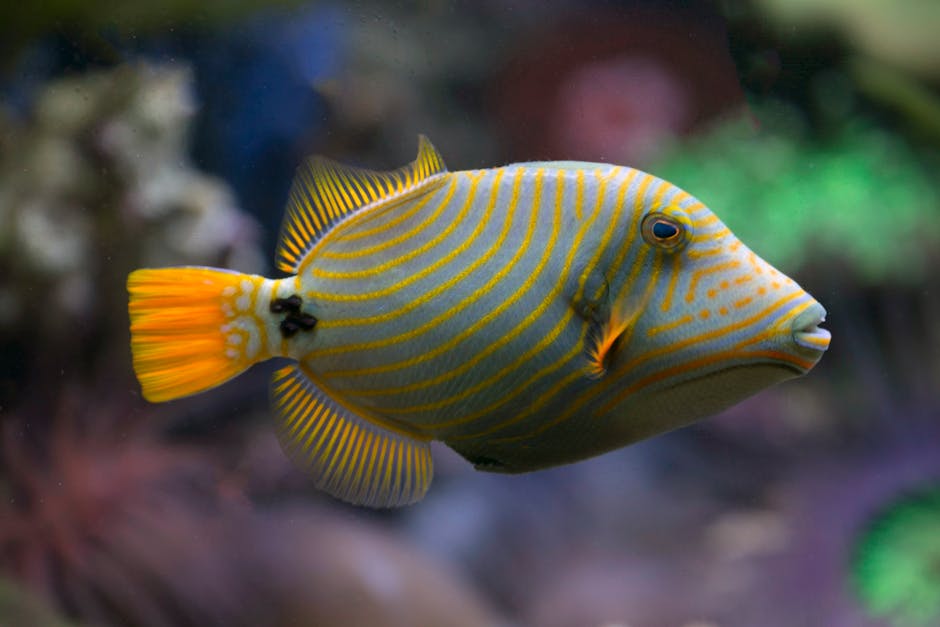The intricate tapestry of life within the ocean’s depths, a realm teeming with diverse organisms interacting in complex ways, forms a critical component of our planet’s health. Marine biodiversity, the variety of life in the marine environment, plays a multifaceted role in maintaining ecological stability, supporting human well-being, and driving crucial biogeochemical cycles. This article delves into the compelling reasons why safeguarding marine biodiversity is paramount for the future of both the oceans and humankind.
Interconnectedness and Resilience: A Fundamental Role
The marine environment is a meticulously woven system, where each species plays a part in the intricate dance of life. A staggering array of organisms, from microscopic plankton to colossal whales, interact in a vast network of food webs and trophic levels. This interconnectedness is a cornerstone of the ocean’s resilience. A loss of biodiversity, whether from overfishing, pollution, or habitat destruction, disrupts these delicate relationships, compromising the entire ecosystem’s ability to withstand disturbances and recover from stress. The removal of a keystone species, for example, can have cascading effects throughout the food web, leading to significant ecological imbalances.
Nutrient Cycling and Productivity: Essential Processes
Oceanic ecosystems are vital for global nutrient cycling, a process crucial for the planet’s overall health. Phytoplankton, a significant component of marine biodiversity, are the primary producers in the vast majority of marine environments. These microscopic organisms convert sunlight into chemical energy, forming the base of the marine food web. They also play a crucial role in absorbing carbon dioxide from the atmosphere, thus mitigating climate change. A reduction in biodiversity, impacting phytoplankton populations, directly impacts these crucial processes, influencing global climate patterns and the availability of essential nutrients for other marine life.
Supporting Fisheries and Human Food Security
Beyond its intrinsic value, marine biodiversity directly supports human well-being. Fisheries, a significant source of protein for billions worldwide, rely on a healthy ecosystem. The presence of a diverse range of fish species and other marine organisms ensures the availability of a sustainable and nutritious food source. A diverse ecosystem is more resilient to fluctuations in environmental conditions, ensuring the long-term sustainability of fisheries. Without this variety, the potential for collapse of fish stocks due to disease, environmental changes or overexploitation becomes significantly higher.
Pharmaceutical Resources: A Wealth of Undiscovered Compounds
The ocean harbors a treasure trove of potentially valuable compounds. Many marine organisms, like sponges and corals, possess unique chemical defenses and physiological adaptations, leading to the development of novel medications and treatments for human ailments. Exploring and conserving this biodiversity is critical for unlocking future medicinal breakthroughs. A decline in biodiversity reduces the potential pool of species that could contribute to innovative treatments.
Coastal Protection and Economic Stability
Coastal regions are heavily reliant on healthy marine ecosystems. Coastal biodiversity, featuring mangroves, seagrass beds, and coral reefs, acts as a natural defense against storms and erosion. These habitats provide crucial nursery grounds for many commercially important species, boosting fisheries and supporting local economies. The loss of these habitats, often a consequence of biodiversity decline, weakens coastal protection, leading to increased damage from storms, coastal erosion, and economic losses.
The Importance of Genetic Diversity: A Foundation for Evolution
Genetic diversity within marine species is crucial for their long-term survival. This diversity allows populations to adapt to changing environmental conditions. A greater range of genetic traits within a species increases its resilience to disease, pollution, and other stresses. Loss of biodiversity, and the associated reduction of genetic diversity, undermines these crucial evolutionary processes, potentially driving species towards extinction. The unique genetic material harbored in these marine organisms contains the potential for innovative solutions to many pressing problems facing our planet.
Addressing the Threat: A Call to Action
Protecting marine biodiversity is of utmost importance. Overfishing, pollution, habitat destruction, and climate change are major threats to the ocean’s incredible diversity. International cooperation, sustainable fishing practices, the reduction of pollution, and the preservation of marine habitats are vital to addressing these challenges. Educating the public about the importance of marine biodiversity and the role individuals can play in conserving it is critical for generating support and fostering responsible behaviour.
Concluding Remarks: A Shared Responsibility
Marine biodiversity is not merely a collection of organisms; it is a complex web of interactions supporting essential ecological processes and underpinning human well-being. Protecting this crucial diversity requires a global commitment to sustainable practices, research, and conservation. The well-being of the ocean is deeply intertwined with the well-being of humanity, and safeguarding this intricate tapestry of life is a shared responsibility that demands immediate and decisive action. By appreciating the profound value of marine biodiversity, we can ensure a healthy ocean for present and future generations.
